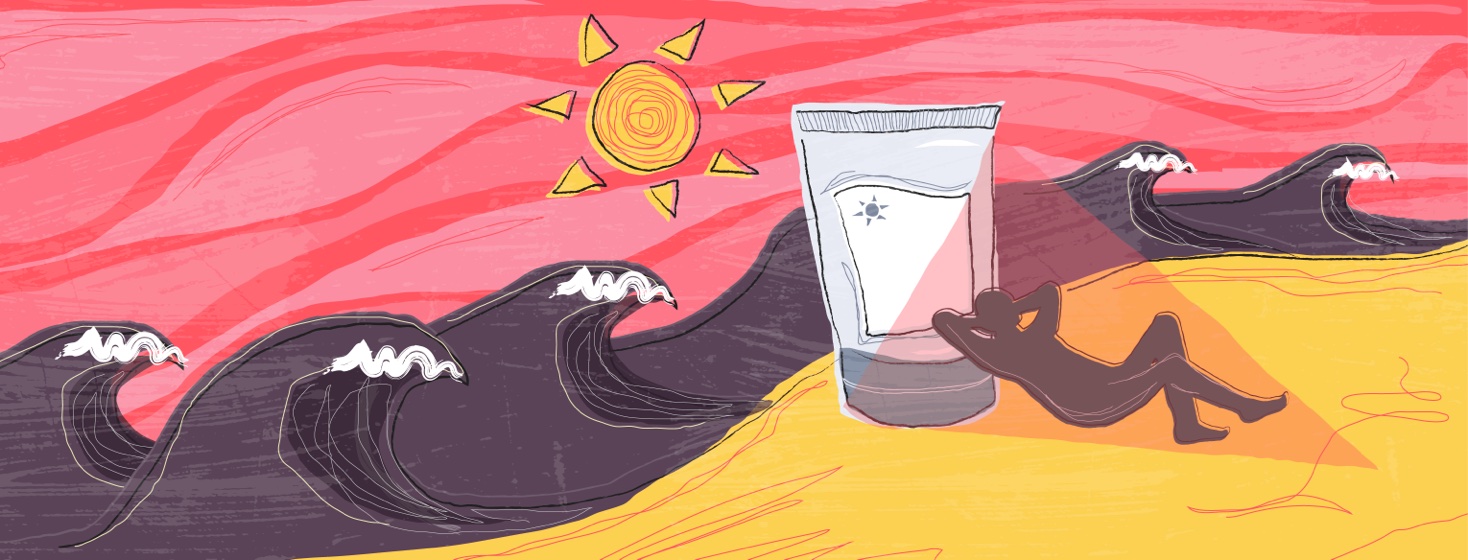What Happens to Your Skin When You Skip Sunscreen?
Who doesn’t love to spend time outdoors during the summers? For most of us, the summer season is a wonderful time of the year to unwind on the porch, enjoy a stroll in the park, or splash in the pool. However, there is one negative aspect of spending time in the sun – damage to our skin from the sun’s UV rays.
The importance of using sunscreen
While it has constantly been suggested by experts to apply sunscreen daily and reapply it multiple times throughout the day, we often forget or really don’t bother to do so. A few unprotected moments in the sun may not seem to hurt, but the damaging effect of UV rays can quickly add up. Basking in the sun without sunscreen leads to skin reddening, sunburns, and even skin cancer. This means, skipping out on your sunscreen routine is risky, especially when you spend a lot of time outdoors. Let’s explore why sunscreen is so important and what could happen to your skin if you skip it.
Why protection is key
Sunscreen is perhaps one of the most crucial ways to protect your skin from UV-induced damage – beyond other measures that you can take to shield your skin against the sun, like wearing UV blocking sunglasses, covering up the body with sun protective clothing, seeking shade, and wearing a broad-brimmed hat. Besides lowering your risk of developing skin cancer, sunscreen prevents signs of aging to appear before time and also decreases skin pigmentation.
If you can, apply sunscreen daily
Daily sunscreen application may appear to be a somewhat expensive affair, but it’s totally worth it. Spending just a few extra bucks on sunscreen to slow down the aging process is a far better choice than shelling out hundreds of dollars on serums and therapies to reduce sun marks, fine lines, wrinkles, sagging skin, and uneven skin tone. Moreover, sunscreen cuts down your risk of skin cancer, which can be very costly and emotionally discomforting. And let’s remind you, skin cancer may result in disfigurement, scarring, and even death. Hence, sunscreen is important as prevention is always better than cure.
What happens if you skip sunscreen?
Here is what really happens to your skin in the absence of sunscreen:
- Tanning: When the skin gets exposed to UV rays, the cells in the lower section of the epidermis are pushed toward the top to thicken the skin. This gives skin a leathery texture. At the same time, some melanocytes – dark pigment-producing cells – in the epidermis, gives us the tan. This simply means the so-called healthy tan is actually a sign of already damaged skin.
- The appearance of new moles: The more sun exposure, the more spots and freckles you will begin to see on your skin.
- Sunburns: After the first sign of sun damage (a suntan), sunburn occurs which is characterized by red, itchy regions on the skin. Repeat sunburns raise your risk of developing skin cancer.
- Signs of premature aging: Almost 90% of premature skin aging happens due to the sun. So, the more time you spend in the sun, the older you will appear.
- Increased risk of skin cancer: UV rays, from both sun and tanning beds, are the most common cause of skin cancer. Remember that it only takes a few sunburns in your entire lifetime can increase your risk of developing cancer considerably.
Given the risks associated with unprotected exposure to the sun, it is extremely important to include sunscreen in your daily skincare regimen.
But what if it's cold outside?
Factually, the weather has nothing to do with the UV levels. Although you may not observe UV radiation, you can still remain exposed to high levels of this damaging radiation even on cloudy days. Reason being, nearly 80% of UV rays can pass through clouds. You should wear sunscreen year-round, every day – even in winters.
How to make sunscreen easily wearable
The most common challenge with daily sunscreen application is that it is usually greasy or thick, or doesn’t go well with your makeup. Thankfully, there are now so many products on the market that are easy to use and suitable even for individuals with sensitive skin. Consider a broad-spectrum sunscreen with SPF 30 or above as these are non-greasy and lightweight. Avoid moisturizers and cosmetics with SPF as an ingredient as they don’t offer enough sun protection.
The best way to apply sunscreen
Sunscreen should ideally be applied before your make-up and after your skincare routine – with a gap of a few minutes between all the steps, to allow the product to absorb into the skin. It should be applied to all the parts of your body that aren’t covered with clothing. For the face, neck, and ears, half a teaspoon or 3 ml is sufficient. Don’t forget to reapply the same amount of it every two hours if you are planning to stay outdoors for an extended period of time.
Now you know the importance of applying and reapplying sunscreen. Protecting our skin is so vital to avoid damage skin from the sun’s UV rays.

Join the conversation